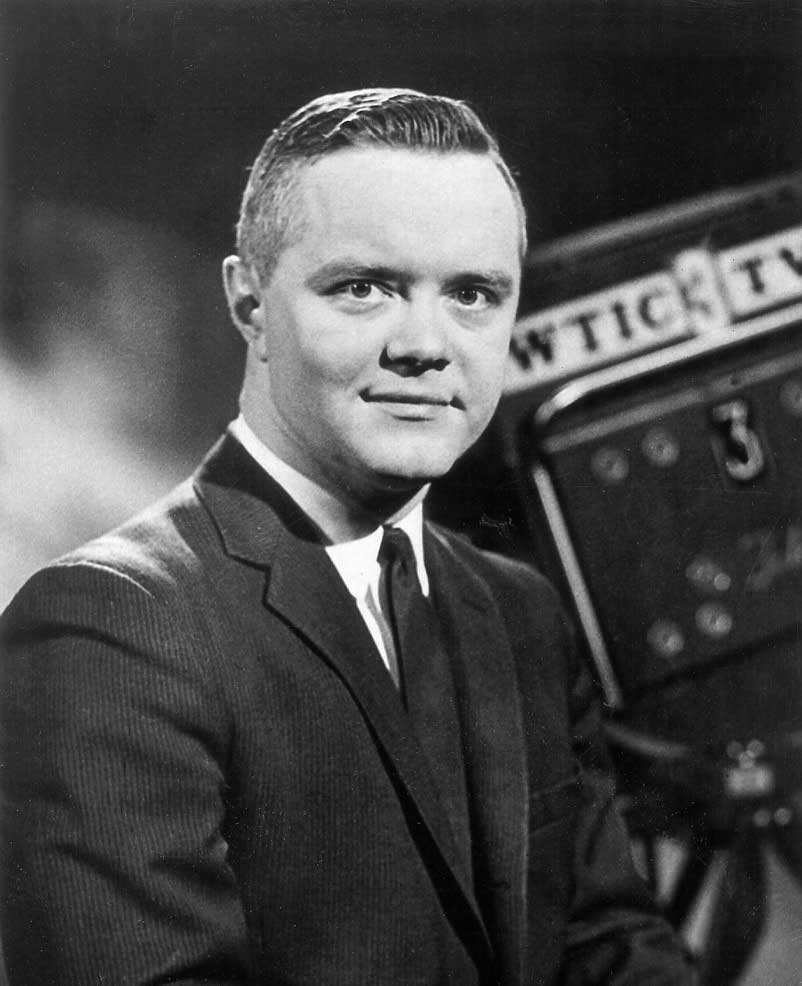
George Conklin Reminiscences:
I was on TIC radio and TV many times in the late 50's - not on staff but as talent for several religion series for the Greater Hartford Council of Churches. So many of the names and voices are familiar. During that time a friend, Gerry Dyar of Margolis Audio, and I produced the first Connecticut stereo broadcast. Left channel in AM, right on FM. Pat Patricelli gave the O.K. for that test run.
Around 1960-61 Harold Dorschug was the chief engineer for WTIC AM FM TV. He came from CBS New York. When he learned I was moving from Hartford to San Francisco he talked about CBS originating from one of the presidential conventions held at the Cow Palace. He wrote the CBS folk out here with all kinds of tech questions/issues - including air conditioning. The wrote back, "The whole city is air conditioned in the summer.
I also remember his quiet glee when his engineers cracked the code for the Zenith over the air test of pay-TV on channel 18. He said it was simple if you had some of the components of the massive Ampex VR-1000 to use.
One of my retirement hobbies is helping the California Antique Radio Association restore an old studio transmitter building in Berkeley on the edge (great ground) of SF Bay. It was, and is KRE. Three stations use the tower and a closet or two in the building. The association is restoring the stations to the 50's and will also use it as the state HQ of the association. The Wolfman Jack scenes in American Grafetti were filmed there. A few weeks ago it was tearing up ratty old carpet, next week it will be painting over decades of - year, graffiti.
"TIC" was kinda the station I grew up with - in the Ben Hawthorne and Bessy Bossy days.
I may be the oldest living 'voice' on WTIC AM . . . Not the best day in my kid life. When I was in elementary school (Southwest) in the late 30's and early 40's WTIC had a March of Dimes booth at the Isle of Safety bus station next to the Old State House. School classes collected dimes all over the city. I was picked to bring a bag of dimes to put on the long white measuring counter. 'Mic fright' was a big bit of urban folklore in those days, we all knew reports of famous people (usually women) fainting. I didn't faint - but when interviewed I forgot to say the name of my class and teacher. Great disappointment back at Southwest. Sigh.... Anyway, I was on TIC about 1940 when I would have been nine. The next time was years later at Boy Scout camp. TIC sent a remote recording truck, lathes and all, up to Winsted to produce a program. After that was the series Colleges of New England (concerts) via a live phone line from Bates in Maine. I sang in the chorus. My room mate and I had a very low power AM transmitter in our dorm - it evolved into the college FM station a few decades later.
The day CBS announced closure of their UHF Channel 18 in Hartford [which was transferred to WTIC-TV], I had a production meeting scheduled at Channel 18 that day and on entering saw a trail of paper tears cascading from the bronze CBS eye logo on the lobby wall.
I remember Pat well, he didn't like my Latin! Seems I narrated the first stereo broadcast on AM and FM. It was a Bach Mass I think. I had a church history scholar coach me on the Latin and matched his pronunciation closely. Pat, who was a classics lover, stopped me in the hall and asked where I learned Latin. I said never, I was coached. Pat knew the church Latin for the the mass. My 'tutor' was a classicist.
I was a bit more
of a producer than an announcer. The TV crew (quietely) told me that they liked
the production activity of our church programs, music, drama, sets, process
videography and such. In the 50s most of the studio work week centered on news,
weather and cooking sets. Out in New Britain Channel 30 was running a daily
afternoon movie and used almost every corner of the studio building for the
program host to "appear" in a setting appropriate to the film. An aircraft
carrier movie was "hosted" from the channel 30 "bridge", a camera shot up to the
control room window with "crew" in uniforms - of a sort - and binoculars.
Those were great days in broadcasting. Management, talent, engineering and
other staff were pretty much home grown and not building up resumes for a climb
up the broadcast career ladder.
George